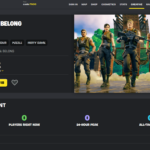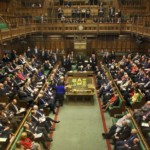Below are our responses to questions we get asked about and issues that we think it is important to be clear about.
- What does ForcesWatch aim to do, and why?
- How can we support you?
- How are you funded?
- What is wrong with recruiting young people who want to be in the armed forces? Why do you want to stop them using the military as a way of improving their lives?
- What should I/my child think about before signing up? What have other people said about their military experience?
- Are you pacifists who don’t think people should join the forces?
- What is wrong with championing the military?
- Aren’t you just helping the armed forces to be better recruiters?
- What can I do about military PR and recruitment activity in my school or community?
- What have other people said about their military experience?
1. What does ForcesWatch aim to do, and why?
The military is a powerful state institution and employer which is often insulated from criticism and warrants public scrutiny. Enormous damage is done to all those caught up in armed conflict (civilians and combatants), and there are unique risks, obligations and rights issues faced by serving personnel. It is therefore vital that there is critical debate about the military, its recruitment practices and its operations.
We aim to:
1. Raise ethics and rights-based concerns and campaign for improvements regarding military recruitment and service. This includes:
a. Recruitment practices, e.g. the recruitment of 16 and 17 year olds and the complexity and restrictiveness of terms of service. This includes helping ensure potential recruits and their families are aware of the risks, difficulties and legal obligations of an armed forces career.
b. The rights of personnel, e.g. their exclusion from human rights legislation, not being allowed to form a union, the opaque system for registering a conscientious objection, and abuse and welfare concerns in the military and among veterans.
2. Challenge efforts to increase military power and influence, and encourage critical public debate about the military and its operations, in society, media and politics. This includes:
a. Military and wider defence (arms companies) influence in education and youth activities.
b. Policies and initiatives which by promoting the military in everyday life aim to instil uncritical national pride in the forces and therefore public support for their wars and overseas interventions.
2. How can we support you?
We are a very small organisation running on limited resources and part-time staff. To keep producing the free information and resources we distribute, and to keep going with our campaigning work, we need support – and a little, for us, goes a very long way.
Please consider supporting us.
We also appreciate you sharing our work, organising events we can speak at and following our social media platforms.
3. How are you funded?
ForcesWatch is currently funded by grants from trusts and by donations. Our work covers a range of activities, some of which are categorised as charitable and some as non-charitable; these attract funding accordingly.
4. What is wrong with recruiting young people who want to be in the armed forces? Why do you want to stop them using the military as a way of improving their lives?
The military targets young people including so-called ‘pre-eligibles’ (children below recruitment age) with a huge array of activities and materials for children and young people, as well as sophisticated marketing campaigns. Colonel Allfrey, who used to be in charge of army recruitment, said the process starts with children as young as seven. Exposed to the influence of the military through toys, schools activities, advertising, promotional public events and cadet forces, the armed forces hope that the final act of signing a young recruit up age 16 will be an easy one.
Many of these recruitment tools capitalise on the potential impressionability of young people by presenting a glamorous view of armed forces life without the risks, legal obligations and ethical issues involved. Young age at enlistment, particularly when combined with childhood adversity, gives recruits a heightened susceptibility to long-term health problems (e.g. self-harm, PTSD, suicide, harmful drinking) – when compared to those who enlist at an older age and when compared to their counterparts in the general population.
While the military can offer opportunities to those who join, this comes at a price – significant risks, hardships, ethical questions and legal obligations. Not only is there a risk of death or serious injury, but risks to physical and mental wellbeing that can continue long after the military career has ended. These are long-term considerations that should be considered and understood thoroughly before enlisting; but the teenage cohort targeted for the most dangerous military roles are at a developmental stage where they are less able to evaluate long-term risk.
Moreover, while some may leave the forces with skills they can use elsewhere, others question what they are equipped for in civilian life. Many struggle to adjust to life outside the routines and institution of the military.
We believe the recruitment material put out by the military champions self-development for young people in this country in the context of war and armed violence in a decontextualized ‘other’ place; and that this is immoral and concerning. We also believe that young people’s desires to get on in life and their concerns about how to do that in a difficult economic climate should not be exploited. Successive governments have made drastic and damaging cuts to youth provision and infrastructure in socio-economically disadvantaged areas while at the same time pouring money into military schemes targeted at those same places, which are motivated by the military’s recruitment needs.
Read more in our report Selling the Military.
5. What should I/my child think about before signing up? What have other people said about their military experience?
It is important to get a balanced and diverse picture of what a military career can involve before you enlist. The armed forces’ marketing material is promotional, so it isn’t likely to focus on any negative aspects.
Young recruits can be more vulnerable in the long-term than adult recruits to the mental and physical risks associated with military training and service.
We recommend that young people wait until they have reached 18 or above before they make a decision to enlist. Staying in school for longer and spending more time in the civilian world before enlisting means having greater transferable skills and qualifications, which will help both in a military career and afterwards in the civilian world.
Look at these other sources for things to think about before you sign up.
6. Are you pacifists who don’t think people should join the forces?
No. ForcesWatch is not a pacifist organisation and we work with groups and individuals who have concerns about militarisation and the ethics and rights issues related to recruitment and service, but who have diverse opinions on war and peace.
Many people are worried about the promotion of the military in their communities and the methods used to engage and recruit young people. Many veterans support our aims.
We are concerned both for individuals involved in the forces and civilians who are harmed by armed conflict. Military intervention is a political decision and debate about it must not be taken out of the political arena by unquestioned assumptions about the role and nature of military action.
We think there are serious ethical problems with the way recruitment is done – it is misleading and manipulative. Some people in our network believe the military inevitably dehumanises and exploits people by training them to kill and exposing them to warfare, and that armed violence is fundamentally wrong. Others believe that while we need the armed forces, it should only be able to join it as adults; we should not be recruiting 16 and 17-year-olds or sending out misleading messages about what is involved.
Our position is that a military career involves significant risks, difficulties, ethical dilemmas and legal obligations, and everyone should think carefully about what they are signing up to before deciding. Most of the information available about serving in the forces is promotional and focuses on the benefits of a military life – we want a more balanced picture to be readily available.
Unfortunately, questioning military action and government policies that seek to promote the armed forces and their operations is often taken as criticism of personnel, when it is not. One of our concerns is that some developments in human rights and wellbeing that benefit the general population are less accessible to those in the forces, for example child rights standards and collective representation through unionisation.
7. What is wrong with championing the military?
Whatever your general opinions about conflict and the armed forces, examining the reasons behind policies that promote the military taking a larger role in public life is important in a democratic society. Extensive military power over society and government is a threat to democracy, and can lead to greater involvement in armed conflict for reasons rather than national security. (See more in our report Warrior Nation). Furthermore, if only the good side of the military is presented and all its actions are presented as ‘heroic’, that is potentially misleading to the young people targeted for recruitment about the risks of military life. It also stifles critiques of military action.
8. Aren’t you just helping the armed forces to be better recruiters?
Military recruitment will continue while there is a military. The more awareness there is about all the risks and obligations of military life, the more informed young people will be. And the more questioning there is about how the military is used and what it does, the more debate there will be about military ethics and wider questions about militarised security and other security approaches.
9. What can I do about military PR and recruitment activity in my school or community?
We have put together a pack called Take Action on Militarism which gives information, ideas and case studies for how individuals and groups can respond to militarism and to recruitment activities that target children and young people.
10. What have other people said about their military experience?
Of course, many people’s experience of being in the armed forces is a positive one. However, for others it is not. There is a higher level of dissatisfaction amongst service personnel compared with civilian workers. Many people who sign up do so when still very young. The choices they make as teenagers may not be made with full awareness yet affect them for much, if not all, of their adult lives.
The most useful insights into what it is like to be involved in the military come from veterans, but there are many different experiences and perspectives in that community. Check out our audio and films and also see Veterans for Peace UK for some views about military service that you are less likely to hear in mainstream debate.





